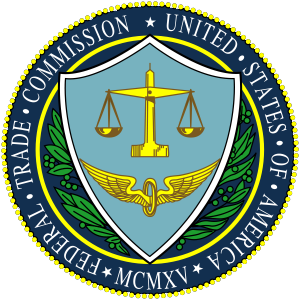
#1: What Is the FTC?
The Federal Trade Commission is an independent agency of the United States government.
Cabinet secretaries don’t head up independent agencies. They’re also not under executive sway, though commanders-in-chief select commissioners representing both parties. Plus, the commission wields the “power of federal law” via the Federal Trade Commission Act.
What is the FTC’s main responsibility? Keeping an eye out for “unfair and deceptive” business activity — including marketing. Essentially, they’re the nation’s “consumer watchdog.”
#2: The “Self-Regulatory Principles For online Behavioral Advertising”
The FTC’s “Self-Regulatory Principles for Online Behavioral Advertising,” is a 55-page report that covers the four principles of acceptable online marketing:
- Transparency & Consumer Control: Businesses are expected to let consumers know when and how they’re participating in target marketing and provide opt-out mechanisms.
- Reasonable Security and Limited Data Retention: Companies that choose to collect personal data should only keep it for as long as necessary. Plus, they can only use the data for specific transactions. The FTC also demands that companies take “reasonable measures” to ensure data security. And yes, consumers can sue companies over preventable security breaches.
- Material Changes to Privacy Policies: Without consumers’ express consent, businesses cannot use behavioral data in a substantially different way than what’s stated in their privacy policies.
- Sensitive Data: Companies can’t exploit sensitive information about a consumer’s financial status, health status, or information pertaining to children.
# 3: Cookies & Consumer Privacy Controls
Cookies help online advertisers track consumer behavior. A few morsels of text can tell you thousands of things about a user.
Remember, though, that personal data related to the online activity of children, financial data, or health status are subject to federal online privacy laws.
Not long after the unveiling of FTC’s privacy guidelines in 2009, Yahoo! and Google created methods for users to opt out of behavioral advertising. In 2014, however, Yahoo! announced they would no longer honor “browser do not track” signals.
#4: Disclaimers Are A Must
General disclaimers don’t do much legally. You must market products and services honestly. Framing exceptional “exceptions” as if they’re ordinary is against the rules. Moreover, if you have an e-commerce site, payment and refund details must be laid out in full.
#5: Material Compensation = Paid Endorser = Mandatory Disclosure
Anyone materially compensated to blog, tweet, or endorse a product must make disclosures, and the statement must be prominently highlighted. Read more about paid and fake reviews here.
#6: Special Rules For Online Jewelry Sales
Jewelry sellers must adhere to the 2008 FTC Guides for the Jewelry, Precious Metals, and Pewter Industries. If you sell gems online — fake or real — make sure you “polish up” on the rules.
#7: Multi-Level Marketing (MLM) Lowdown
The FTC is against matrix or multi-level marketing schemes and treats them as illegal pyramid schemes.
#8: Internet Businesses Need Internet Attorneys
An experienced online marketing lawyer can help keep the FTC at bay. Get in touch today to get on track.





